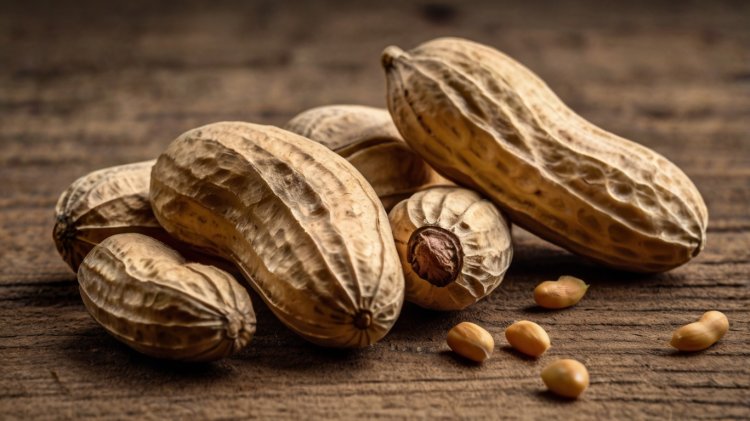Peanuts: Nutrition Facts, Health Benefits, and Practical Uses
Peanuts are a nutritional powerhouse, rich in protein, healthy fats, vitamins, and minerals. They support heart health, weight management, brain function, and digestion. Learn about their impressive health benefits, nutritional value, and how to incorporate them into your diet for better overall well-being.

The Comprehensive Guide to Peanuts: Nutrition Facts, Benefits, and Uses
Peanuts, often underestimated as a simple snack, pack a nutritional punch that offers a range of health benefits. These versatile legumes (yes, peanuts are legumes, not nuts!) are rich in protein, healthy fats, vitamins, and minerals, making them a powerful addition to your diet. Whether consumed raw, roasted, or as peanut butter, peanuts can contribute to better heart health, weight management, and more.
Here’s a detailed look at the nutritional value, health benefits, and practical ways to incorporate peanuts into your daily life.
Nutritional Profile of Peanuts
Peanuts are nutrient-dense, providing a blend of macronutrients and micronutrients essential for overall health. Here’s a breakdown for 100 grams of raw peanuts:
- Calories: 567
- Protein: 25.8 g
- Fat: 49.2 g (mainly unsaturated fats)
- Carbs: 16.1 g
- Fiber: 8.5 g
- Vitamin E: 8.33 mg
- Magnesium: 168 mg
- Phosphorus: 376 mg
Peanuts are particularly high in monounsaturated and polyunsaturated fats, making them a heart-healthy choice.
10 Health Benefits of Peanuts
1. Supports Heart Health
Peanuts are rich in heart-healthy nutrients like magnesium, niacin, and unsaturated fats. They help lower bad cholesterol (LDL) and reduce the risk of cardiovascular diseases. Peanuts also contain resveratrol, an antioxidant linked to improved heart health.
2. Aids Weight Management
Despite being calorie-dense, peanuts promote satiety thanks to their protein, fiber, and healthy fat content. Research suggests that moderate peanut consumption does not lead to weight gain and may even support weight loss.
3. Boosts Brain Health
Peanuts are a good source of vitamin E, healthy fats, and niacin—all of which support cognitive function. These nutrients may help protect the brain from age-related decline and improve memory.
4. Helps Regulate Blood Sugar
With a low glycemic index (GI) of 13, peanuts are ideal for maintaining stable blood sugar levels. Magnesium and unsaturated fats in peanuts further support insulin sensitivity, making them beneficial for people with diabetes.
5. Promotes Digestive Health
Peanuts are high in fiber, which aids digestion and prevents constipation. Fiber also promotes the growth of beneficial gut bacteria, enhancing overall gut health.
6. Strengthens Bones
The magnesium, phosphorus, and zinc in peanuts contribute to bone density and strength. Regular consumption can support skeletal health and reduce the risk of osteoporosis.
7. Enhances Skin Health
Peanuts are rich in antioxidants like vitamin E, which protect the skin from oxidative stress. Their healthy fat content also supports skin hydration and elasticity.
8. Provides Sustained Energy
Packed with protein, fiber, and healthy fats, peanuts offer a steady energy release, making them an excellent snack for busy days or workouts.
9. Reduces Inflammation
Peanuts contain anti-inflammatory compounds, including polyphenols and resveratrol. These help lower chronic inflammation, which is linked to various diseases.
10. May Prevent Gallstones
Studies suggest that regular peanut consumption may reduce the risk of gallstones by lowering cholesterol levels, a primary cause of gallstone formation.
How to Incorporate Peanuts Into Your Diet
- As a Snack: Enjoy a handful of roasted or boiled peanuts as a mid-day snack.
- Peanut Butter: Spread natural peanut butter on toast, mix it into smoothies, or use it as a dip for fruits.
- Cooking: Use peanut oil for cooking or add crushed peanuts to salads, stir-fries, or soups for extra crunch.
- Baking: Include peanuts in cookies, energy bars, or muffins.
Potential Downsides of Peanuts
While peanuts are incredibly healthy, they come with some considerations:
- Allergies: Peanut allergies can cause severe reactions, including anaphylaxis, in sensitive individuals.
- Aflatoxin Contamination: Poorly stored peanuts may be contaminated with aflatoxins, which can harm the liver.
- Caloric Density: Overeating peanuts can lead to excess calorie intake, so moderation is key.
FAQs About Peanuts
1. Are peanuts good for weight loss?
Yes, peanuts are filling and nutrient-dense, making them a great addition to a weight-loss diet when consumed in moderation.
2. How many peanuts can I eat in a day?
A recommended serving size is about 1 ounce (28 grams), equivalent to a small handful or 16-18 peanuts.
3. Are roasted peanuts healthy?
Yes, roasted peanuts retain their nutritional value, but opt for unsalted varieties to avoid excess sodium.
4. Can peanuts improve heart health?
Absolutely! Peanuts contain heart-friendly nutrients like unsaturated fats, magnesium, and resveratrol.
5. Do peanuts cause weight gain?
When eaten in moderation, peanuts do not cause weight gain and may even aid in weight management.
Takeaway
Peanuts are a versatile and affordable superfood that offers a range of health benefits. Whether you’re looking to boost heart health, manage weight, or improve digestion, peanuts are a fantastic addition to a balanced diet. Enjoy them in various forms, but remember to consume them in moderation to avoid potential downsides.










